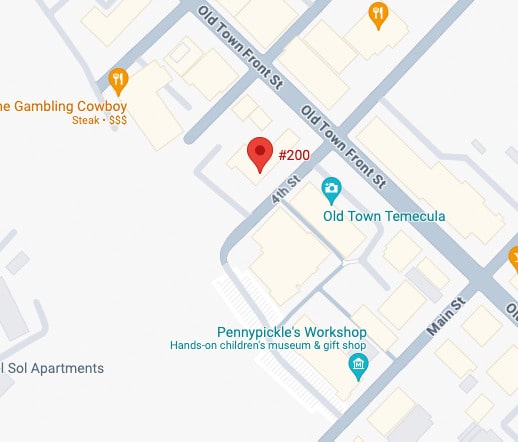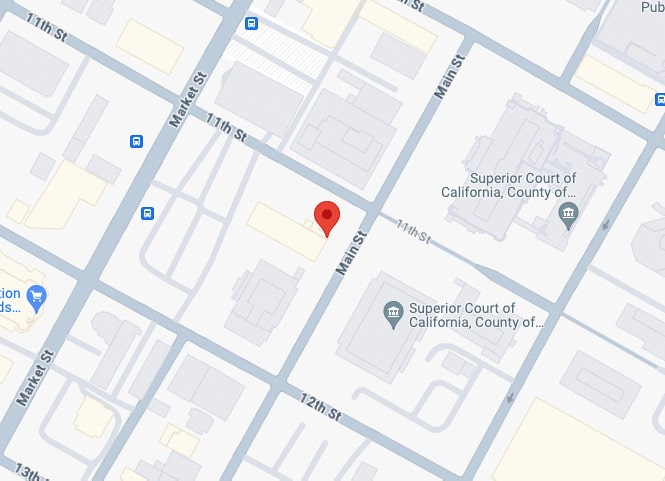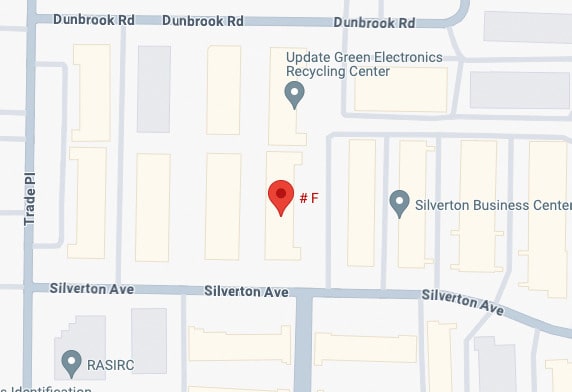Drug possession is a common crime in California. If law enforcement officers arrest you for drug possession, the judge will set a bail amount to allow you to leave jail until your trial. It is essential to understand how the bail procedure works, why the court requires defendants to post bail, and how much the bail amount could be.
After an arrest, you will probably wonder about the bail amount. This is understandable given the stress of the situation, particularly when it comes to posting cash bail. The crime for which the defendant faces charges is one of the criteria that can influence the amount of bail set. Other factors that the judge considers are your criminal record, whether you face misdemeanor or felony charges, and whether you have skipped bail.
Arrest For Drug Crimes
Officers can arrest you for drug offenses under a variety of circumstances. The circumstances include personally watching you engage in a crime, having probable cause to believe you committed a drug crime, or having an arrest warrant issued. After an arrest, the law enforcement officers will take you into custody. If the arresting officer feels you have committed a minor drug crime, they can give you a citation and request that you show up for booking and processing.
Once you are in police custody, the officers should read your Miranda rights to you, explaining the following:
- Explaining that everything you say can and will be used against you in court.
- The law enforcement officers should inform you about your right to remain silent.
- Your right to hire an attorney. The court should appoint an attorney if you cannot hire one.
Sometimes, the police can arrest you without a warrant. In this case, law enforcement should only hold you for the time needed to undertake administrative tasks like fingerprinting. You should not remain in custody for more than 48 hours. When in police custody, you should exercise your rights by contacting an attorney and a reliable bail bondsman. If you cannot access a bondsman, contact a friend or relative to have them hire one for you.
Understanding Bail
Drug offenses are more widespread than people realize. Drug possession accounts for a significant percentage of misdemeanor charges. Sometimes, you could be falsely accused of possessing drugs. That is why it is critical to know your rights if you are detained.
After an arrest for drug possession, you will be processed and undergo the booking process. Following this process, the police will place you in a county jail or holding cell to await your court appearance. To be released from jail, you must pay bail. The sum you must pay depends on several factors, including the offense for which you were arrested.
The booking process involves obtaining your personal information and records of the alleged drug crime. Law enforcement officers will also look into your criminal background, take your mugshot, search you, and confiscate any personal property you have. You will then proceed to a holding cell.
In California, bail is the amount of money or property the accused or their surety must deposit with the court. Bail guarantees the accused person's release from confinement while they await trial. The goal of bail is to guarantee that the defendant shows up in court for all planned court hearings and does not get away before trial.
A bail table or schedule guides the judge when setting bail amounts. However, a judge could deviate from the schedule for several reasons. The reasons include the magnitude of the charge, the offender's criminal history, and if the accused is a flight risk. If a defendant fails to attend court, their bail could be forfeited, and the judge will issue an arrest warrant.
How Bail Bond Works
A surety bond could be a viable option if you cannot pay your bail. A bail bond agent who works for a bail bond firm will impose a fee as compensation for posting bail on your behalf. California bail bond businesses charge only 10% of the amount for posting a defendant's bond. Thus, if the bail sum is $20,000, the bail bondsman will charge $2,000 instead of the total amount. This could still seem like a significant sum of money. However, it is substantially cheaper than posting the entire bond amount, particularly for excessively high bail sums and severe drug possession charges.
After a release on bond, the court can impose some conditions. The typical bail conditions include:
- Complying with electronic monitoring or house-arrested.
- Surrendering your driving license or passport.
- The court can prohibit you from leaving the state until the completion of your case.
You can post a collateral or no collateral bail bond, depending on the facts of your case and the bail bond company you choose. You can use different collateral types to secure a bail bond. Some of the items that bail bond agents accept as collateral include:
- Vehicles.
- Savings accounts.
- Precious metals and jewelry.
- Investment accounts.
- Real estate.
- Valuable personal items like artwork.
- Electronics.
What To Expect During Bail Hearing
The bail amount is usually determined during the defendant's first court appearance. The first appearance is known as the pre-trial detention or arraignment stage. The judge could release a defendant on their own recognizance or through bail.
With their own recognizance release, the defendant makes a promise in writing to return to court at a future date. If the accusation is an infraction or misdemeanor, the defendant can be released without bond after being detained. More serious felony charges will not qualify for an own recognizance release option, and the defendant must post bail.
The bail bond process begins when a defendant appears before a judge to determine bail. Various variables are taken into account when deciding the bond amount. Judges consider the seriousness of the crime, criminal history, and whether the defendant is a flight risk. Other factors considered include community ties, the defendant's financial resources, a potential threat to public safety, and mental health.
The bail schedule directs bail setting for all criminal accusations, even if the court can use discretion when setting bail amounts. Even when out of custody on bond, the offender could still be placed under home arrest, barred from possessing any dangerous weapons, or subjected to electronic surveillance.
Bail For Drug Possession In California
When assessing the amount of bail for drug possession, the judge will consider the form of possession offense you face. There are three types of possessions.
- The first is actual possession — Which occurs when authorities discover drugs on your person.
- Constructive possession — Occurs when narcotics are found nearby, like in your car, rather than on your person. You have direct control over your vehicle, but do not actively keep it on your person.
- Joint possession — Occurs when more than one person has actual or constructive possession of a substance. If you exchange drugs with someone, the other person could face drug possession charges even if the narcotics were not theirs.
How The Prosecutor Proves Drug Possession
To prove possession of an unlawful or controlled substance, the prosecutor must prove these elements:
- You possessed a controlled substance.
- The controlled substance is prohibited.
- The substance is on the California Health and Safety Code's controlled substance list.
- You were aware you possessed the substance.
- The prosecutor must also show that you were aware that what you possessed was a drug.
- You must have had a sufficient amount of the drug.
When the prosecutors prove usable drug amounts, he/she will not just determine whether there was enough of a controlled narcotic to get you high. Instead, usable levels mean having enough control to use.
You can possess drugs with the intent to distribute them. There are several criteria for charging someone with drug possession with the intent to distribute. If there is evidence that you are packaging drugs and engaging in sale transactions, you could face charges for drug possession with intent to distribute. Massive quantities of controlled substances and cash can also indicate an intention to distribute. Intent to distribute often results in a harsher conviction than simple drug possession.
Felony Drug Possession HS 11350
You can face misdemeanor or felony drug possession charges. The severity of the offense is determined by the quantity of drugs you possess. The court will consider whether the drugs were in usable amounts or not. The charges will also depend on the type of controlled substance you possess. The judge will consider whether you possess a prescription drug or a more severe substance, such as cocaine.
What you intend to do with the controlled substance will also determine the types of charges you face. The court will determine whether the controlled substance was for sale or personal use. Under federal and California law, controlled substances fall under five different schedules. Certain prescription drugs only pose issues if you do not have a genuine prescription, while others are banned under any circumstances.
Schedule I Drugs
This category contains medications with a high potential for misuse and no acknowledged medicinal use in the U.S. Schedule I drugs include LSD, heroin, ecstasy, and marijuana. The criminalization of marijuana possession varies by state. California legalizes both medical and recreational marijuana use. Schedule I drugs are regarded as the most harmful and are closely monitored.
Schedule II Drugs
Substances in this category have a significant potential for addiction. However, they do have specific approved medical uses with stringent restrictions. Examples include cocaine and opiates like oxycodone, methadone, and fentanyl. Misuse of Schedule II substances can result in severe psychological and physical dependence.
Schedule III Drugs
Drugs in this category are less likely to be abused than Schedule I and II substances. Schedule III drugs have established medicinal uses. Examples include anabolic steroids, barbiturates, and stimulants such as ketamine. Despite the lower risk of dependence, abuse of Schedule III narcotics could result in moderate to low psychological or physical dependence.
Schedule IV Drugs
Drugs in this category have a lower risk for addiction than Schedule III drugs and are approved for medical use. These drugs include benzodiazepines such as Xanax and Valium, muscle relaxants, and sleep aids. These medications have a lower risk of dependency than those on higher schedules.
Schedule V Drugs
This category covers medicines with the lowest risk of abuse compared to the other schedules. Schedule V drugs also have acceptable medical uses. Cough syrups, for example, are over-the-counter drugs that contain small doses of codeine. Schedule V controlled substances pose the lowest dependence risk. However, they are still restricted, given their potential for abuse.
Whether It Is Legal To Possess Marijuana In California
Yes, California has legalized recreational marijuana or cannabis use. All adults over 21 are allowed to possess up to 28.5 grams. The law also allows you to possess cannabis for medical purposes. There is no limit to the amount of medical marijuana you can possess, as long as you have a legitimate prescription.
Nonetheless, if you have marijuana in your possession to sell it, you could face a misdemeanor charge. Fines for misdemeanor marijuana possession will range from $100 to $500. You could avoid jail time by engaging in community service and completing drug counseling.
There are several instances where marijuana possession could result in felony possession charges.
- Your record shows two prior minor drug crimes.
- Your record contains prior convictions for sex crimes, violent crimes, or other serious felonies.
- You attempted to sell marijuana to a minor.
Drug Possession Is Often a Misdemeanor
In most cases, you will face misdemeanor charges for simple drug possession. Felony drug possession arises after the judge determines whether the type of controlled substance involved and its quantity warrant a felony charge. Illegal possession of a controlled substance can be a felony if the offender has a prior conviction. Drug possession can also be a felony if the defendant possesses the controlled substance with the intent to sell it.
The majority of felony convictions for unauthorized possession of a controlled substance arise when the drug is a narcotic drug. You could also face felony charges if you possess a drug under Schedule I or Schedule II, including cocaine, heroin, ecstasy, or even hydrocodone or Vicodin, without a valid prescription.
Cost Of Bail For Drug Possession
Many factors can influence the cost of bail for a drug possession crime in California. For example, a judge will always consider the type and quantity of the substance possessed. Remember that the quantity of a controlled substance can also determine whether you face charges for possession or possession with intent to sell.
Your job and your financial situation can assist or hurt you here. For example, if you earn a lot of money, you could be considered a flight risk. The court is likely to consider you a flight risk if your charge carries the risk of a lengthy prison sentence.
If you have a good employment history, this indicates that you are in a stable situation and are unlikely to flee. You could also receive lenient treatment if you are deemed to be a good citizen in the community you live in. This could involve serving on local councils or participating in events and charitable groups.
The circumstances surrounding the drug charge could also play a role here. A significant consideration would be where you were arrested with the drugs. If you were arrested at a location of interest, such as a school, and were suspected of distributing drugs, your bond amount could be higher.
Various elements can play a role here. As a result, estimating the cost of bail is challenging. It will mostly be determined by what the judge considers to be the right amount for your unique situation.
The most severe crime that people face is trafficking. You could face drug trafficking charges for the drugs you were allegedly transporting, selling, or giving away. Drug trafficking crime becomes even more severe if it is suspected that you intend to transport drugs across the state line into California. This will result in federal prosecution and more severe penalties. It could also imply that you must pay a higher bail figure.
What You Should Do When You Face Drug Possession Charges
If you face drug possession charges, or if your loved one faces possession charges, you must take appropriate action. You should seek to post bail as soon as possible. If you do not pay bail within the specified time frame, you will be incarcerated while you prepare a defense strategy to fight your charges. Drug possession offenses are difficult to prosecute. That is why it is in your best interest to be out of custody as soon as possible, enabling you to work with your attorney to create a solid defense.
Find an Experienced Bail Bondsman Near Me
Many people find it difficult to afford the full bail amount. At Justice Bail Bonds, we can deliver a simple, quick, and reasonable bail service. This will spare you the time and energy required to dispose of assets to pay the bail. Our service is available 24/7, and we can post a bail bond for you or your loved one in Temecula within the shortest time possible. Contact us at 714-541-1155 to speak to one of our bail bondsmen.










